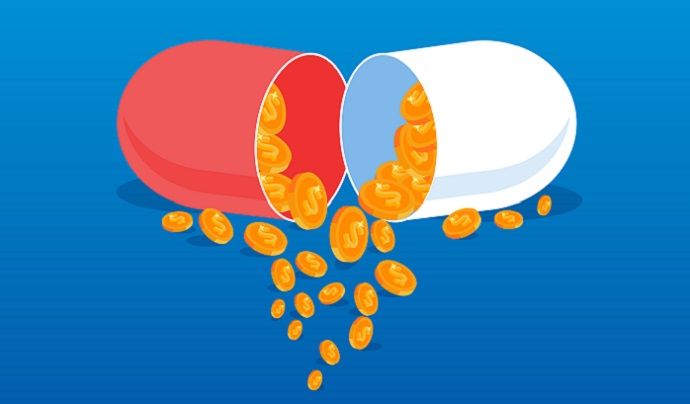Specialty Pharmacies Offered Lower Drug Prices Than Hospitals
Drugs administered at a hospital cost $7,000 more than the same drugs did when patients obtained them through a specialty pharmacy.

Source: Getty Images
- Hospitals and physician offices charged patients significantly higher amounts for drugs than specialty pharmacies did, according to a study from AHIP.
Rising drug prices have contributed to high healthcare spending and can limit access to necessary treatments or medication. Specialty pharmacies may present a more affordable option for consumers.
AHIP researchers analyzed the cost of 10 drugs between 2018 and 2020 that healthcare settings—including hospitals—purchased, stored, and administered to patients. The trade organizations looked at drugs that specialty pharmacies could safely and securely deliver for provider administration.
The findings revealed that the prices for drugs administered at a hospital or physician’s office were significantly higher than the same drugs purchased through a specialty pharmacy.
More specifically, costs for a single treatment of drugs at a hospital were an average of $7,000 more than drugs at a specialty pharmacy. Drugs that patients received in a physician’s office were an average of $1,400 higher than drugs from a specialty pharmacy.
Additionally, hospitals charged, on average, double the prices for the same drugs compared to specialty pharmacies, and physician offices charged an average of 22 percent more.
AHIP contended that hospitals and physicians charge steeper drug prices in order to receive higher reimbursement rates and payments. The high drug costs are in addition to fees hospitals and physicians receive to administer the drugs.
“Now more than ever, Americans deserve more affordable solutions, and we all need to work together to deliver for them,” Matt Eyles, president and chief executive officer of AHIP, said in the press release. “Health insurance providers are developing solutions to improve affordability while protecting patient safety and access.”
“The data are clear; specialty pharmacies lower patient costs by preventing hospitals and physicians from charging patients, families, and employers excessively high prices to buy and store specialty medicines themselves. Secure, direct delivery is a safe and smart competitive alternative that improves affordability and access for everyone.”
Clinicians and hospitals tend to collect large profits when it comes to drug spending.
A past study revealed that clinicians affiliated with multiple hospitals incurred almost $25,000 more in drug costs than single-hospital affiliated clinicians.
A 2019 analysis from the Partnership for Health Analytic Research, LLC (PHAR) found that hospitals retained 91 percent of the gross profit margin on physician-administered drugs. In contrast, physician offices collected 9 percent of the gross profit margin.
While the overall concentration of healthcare spending has remained steady for the past two decades, there was an increase in the concentration of prescription drug spending. In 2001, 6 percent of the population accounted for around half of all prescription drug spending. But in 2018, that number decreased to 2.3 percent.
This increased concentration could be due to many primary care drugs losing their patents, leading to the genericization of certain drugs. The biopharmaceutical industry also shifted its focus to high-cost specialty drugs targeted to smaller populations, the study noted.
The AHIP study results highlight a potential alternative for patients to obtain the drugs and medication they need at a more affordable price.
